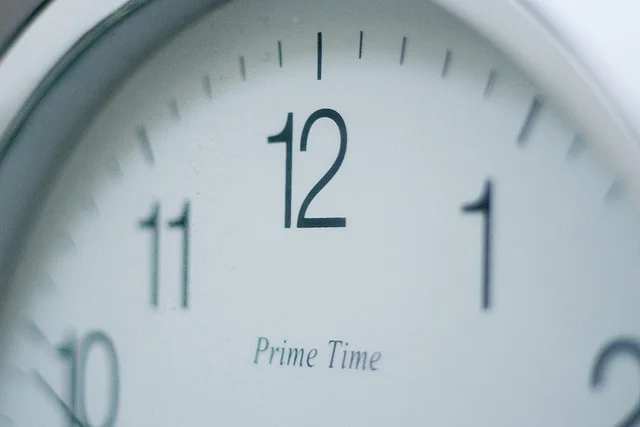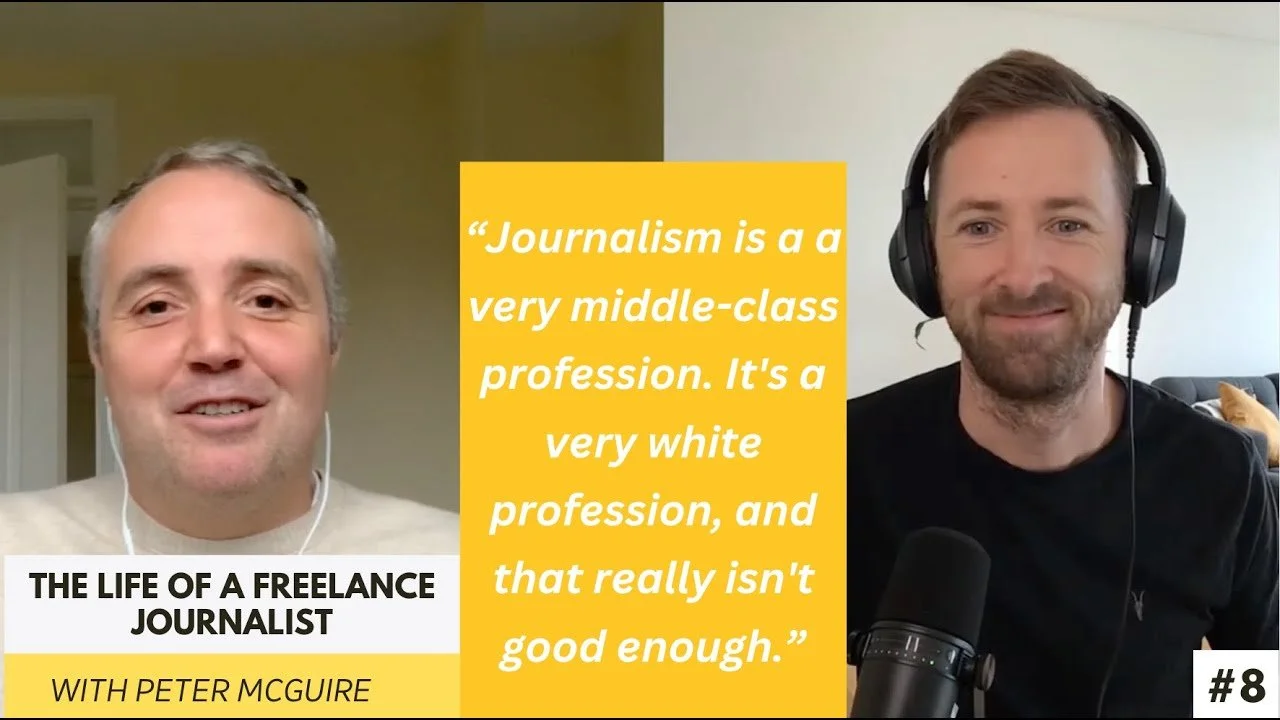3 Things that destroy your goals
Often when we need to excuse ourselves for not having done something, we say things like “I don’t have the time/money/energy”. Most of us have said it at some stage and we know that as soon as we say it, we have a perfect reason for not doing anything differently or changing our behaviours in any shape or form. Why would we? After all, we really believe this to be true. This is also a frequent complaint of people who feel that they don’t have what they want or the lifestyle that they were hoping for.
And it may be true, let's examine whether or not this is really true all of the time.
I don’t have the time
This reason get’s us out of so many things that we really know we should be doing when we have no other excuse. For example, "I’d like to get fit but I don’t have the time because of work and study.” Or we might say that we’d like to start a business but they don’t have time because we’re working too much at the moment. I can understand these complaints because I've been there myself and they’re probably true. After all, we are always doing something, even if it is just watching TV. The Irish times have reported on a survey that TAM Ireland have done, "The latest figures from TAM Ireland show that Irish people spend an average of three and half hours watching television every day”.
Source: zoutedrop
Of course it's OK to relax. Taking breaks is part of being productive when you are working. Everyone needs to rest and take a break. Having said that, some people don’t even have time to take a break because they come home after work and they have to look after kids or simply cook and clean for themselves. And I think that this situation is often harder for women (with children) than it is for men. However, the COO (Chief Operating Officer) of Facebook Sheryl Sandberg, mentions in her TED Talk that it’s important for working women to make sure that their other half is giving them enough help with the children and the housework to allow them to have careers and other interests too. One of the key points in her talk is: "Make your partner a real partner."
So, she has a very challenging job, two children and a partner and still managed to write a book. Where does she get the time? She’s a very wealthy lady so maybe that has something to do with being able to hire people to help her do everyday household tasks, but I couldn’t say that for certain. Or maybe there’s some other way that she found time to do all of these things. The latest I’ve heard is that she’s leading a movement called “Lean In" to help women achieve their goals. Whether you like her work or not, that’s impressive. But the point I’m making is that when there is something that we want to do, that we really really want to do, we find a way. Why would you look for more time if you were convinced you couldn’t find it? You wouldn’t, there’d be no point.
I propose that we open our minds to the possibility of finding a way to have more time and see what sort of solutions we can come up with.
I don’t have the money
“I don’t have the money to do the course, to study, so I can’t do it.” Money, or rather the lack of it, is a very real struggle for many people in Ireland (and the world). But it is now possible to study at a third level institution without actually going there. The reality is that there are now hundreds of free high quality distance learning courses available to anyone with a computer and an internet connection (like the ones in your local library). Needless to say, the libraries have huge varieties of books on almost all topics and are now increasing their services to include ebooks.
Source: Dan Moyle
"I don't have the money to join a gym". Many people don't. I have spent two years working in a gym with professionals who coach high performance athletes, and I can tell you that they can do a full body workout using only a person's body weight and about €20 worth of equipment, if even that much.
"I don't have the money to go out". Understandable. If you’re struggling financially, social events move right down the list of priorities. And while a lot us are very familiar with all of the social and business events that cost money, remember that there are also lots and lot of free events and activities on 'What's ON' and of course 'Eventbrite', not to mention all the other low or no-cost activities like walking, running, swimming, hiking, kite-flying, reading etc.
So I'm not saying that we don't have money issues, I'm sure that most people do. What I'm saying is that if we keep our eyes open and focus on alternative possibilities, we may be able to find a way around them.
I don't have the energy
“I don’t have the energy to do nice things for my other half because I’m tired after work.” "I don't have the energy to go to the gym" or "I don't have the energy to go out tonight". And we all know that we say these things sometimes along with a wide variations of other excuses.
If you find that you really have low energy, you should try exercising consistently for at least 30 days, sleeping at regular times every night, avoiding alcohol and eating really well. This isn't a health and nutrition blog so I won't go into physical health here, but they are simple steps you can take to increase your physical energy. But you don't have to take my word for it. The world famous 'The Mayo Clinic' notes on its blog that:
Source: memories_by_mike
"Exercise and physical activity deliver oxygen and nutrients to your tissues and help your cardiovascular system work more efficiently. And when your heart and lungs work more efficiently, you have more energy to go about your daily chores."
The reality is that even if we have the money to do something, if we don't have the energy to do something, we certainty won't find the time. So taking steps to improve our energy levels will certainty help us focus better and get more out of our day.
The truth and the fear
I think while we may have some real limits as to why we can’t do things, but it’s very important to distinguish the real limits from limiting beliefs. A limiting belief is when we believe something to be a certain way without checking to make sure if it is really true. But when we believe that something is a particular way, there’s a risk that we won’t investigate further. I’ll give you a personal example to clarify what I mean. I wanted to do a workshop while I was living in Madrid. However, I had multiple reasons why I thought it could fail and they were all legitimate. Firstly, my Spanish wasn’t good enough to do it in Spanish, so I would have to do it in English, which would in turn reduce my possible audience to people who had a high level of English or who were native speakers. Secondly, I was doing it in July which is when a lot of Spanish would be on holidays and when a lot of foreigners, who work in the school system in Spain, had already returned to their home countries for summer holidays. Thirdly, I was concerned that even if people did know about the workshop, were available to go and could understand it, maybe they wouldn’t be interested in it. And finally, I wasn’t sure that they’d make the effort even if they were interested because wanting to do something and doing it are often very different.
So I knew I had at least 4 possible limits, but I didn’t know if they were real limits or limiting beliefs. When 25 people came to the workshop on a summer’s evening in Madrid, I knew that I had limiting beliefs because I had tested them. Why would you try something that you already think is impossible? There’s no point. So what I ask my clients to do is to investigate fully the possibilities that are available to them before ruling anything out. So do yourself a favour:
Investigate your beliefs a little further to see what is possible or what’s not possible.
Final note
If we are really honest with ourselves, fear is often the real problem. We often have the time and energy, and money isn't the deciding factor, but we don't follow through with our plans, dreams, goals because we're afraid that we'll fail. And if we fail, we feel that people will look at us in a different way or treat us differently. So if you're not sure that this applies to you, ask yourself "what would you do if you knew you couldn't fail?". If you are not already doing the answer, there's a good chance that you're afraid of failure and it's holding you back. Here's a better question, "what would you do if you knew that people would respect you more if you tried and failed rather than never having tried at all?". Something to think about.
When you open up your mind to what the possibilities are, you will find that you start seeing more opportunities just because you’re looking for them.
Thanks for taking the time to read this. I hope you have found this useful.
Ronan
References:
Harrison, B. (2014) 'TV goes to extra time as viewers tune in for longer', The Irish Times, July. Available at: http://www.irishtimes.com/business/sectors/media-and-marketing/tv-goes-to-extra-time-as-viewers-tune-in-for-longer-1.1852802#.U7UTDQiZoKE.twitter [Accessed 13 10 2014]
Sandberg. S. (2010, Dec) Why We Have Too Few Women Leaders, Retrieved from: http://www.ted.com/talks/sheryl_sandberg_why_we_have_too_few_women_leaders
Start Class. Available at: http://www.startclass.com [Accessed 13 10 2014]
Mayo Clinic Staff (2014 ) 'Exercise: 7 benefits of regular physical activity', Mayo Clinic, February. Available at: http://www.mayoclinic.org/healthy-living/fitness/in-depth/exercise/art-20048389?pg=1 [Accessed 13 10 2014]














